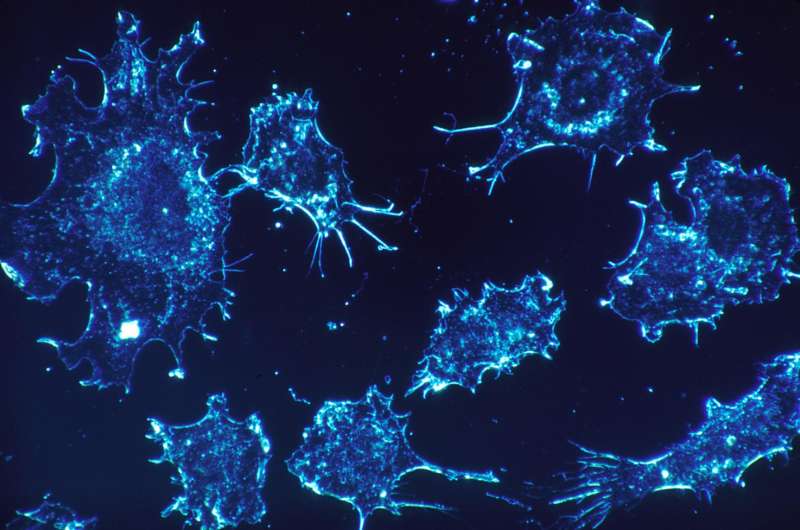Cancer: The immune system attacks tumors remotely

How does the immune system act to limit tumor development? Using in vivo imaging tools, scientists from the Institut Pasteur and Inserm described the spatiotemporal activity of tumor-infiltrating T lymphocytes, both locally and remotely. Their research was published in the journal Nature Cancer on March 9, 2020.
Some cells in the immune system, like T lymphocytes, are capable of attacking cancer cells. Promising new therapies known as immunotherapies, recognized by the 2018 Nobel Prize in Medicine, attempt to boost the immune system's response to cancer.
But how exactly do T lymphocytes act in tumors? T lymphocytes are killer cells that are capable of infiltrating a tumor and destroying cancer cells, one by one, through direct contact. This destruction of cancer cells is a highly local phenomenon that only occurs in the immediate vicinity of killer cells. But during these contacts, T lymphocytes also produce soluble molecules known as cytokines. Scientists from the Institut Pasteur and Inserm set out to understand the effect of one of these cytokines, known as interferon-gamma (IFN-γ), on the tumor microenvironment.
They used highly powerful imaging techniques to visualize, in real time and in vivo in mice, both the behavior of T lymphocytes and also the effect of IFN-γ within the tumor. The scientists observed that rather than acting locally, the cytokines spread rapidly within the tumor and affect cancer cells that may be distant from the T cells. "This remote action within the tumor is very interesting because it enables T lymphocytes to act on a large number of cancer cells, especially those that may have developed mechanisms to escape the immune system," explains lead author Philippe Bousso, an Inserm researcher and Head of the Dynamics of Immune Responses Unit at the Institut Pasteur.
In their research, the scientists also demonstrated that the number of T lymphocytes that successfully infiltrate the tumor is correlated with the quantity of cytokine produced and determines the extent of tumor cell response. A study of melanoma patient cells supports this model of remote action by immune cells. Stimulating this collective response could therefore represent a key target for future immunotherapy approaches.
More information: Ronan Thibaut et al, Bystander IFN-γ activity promotes widespread and sustained cytokine signaling altering the tumor microenvironment, Nature Cancer (2020). DOI: 10.1038/s43018-020-0038-2


















